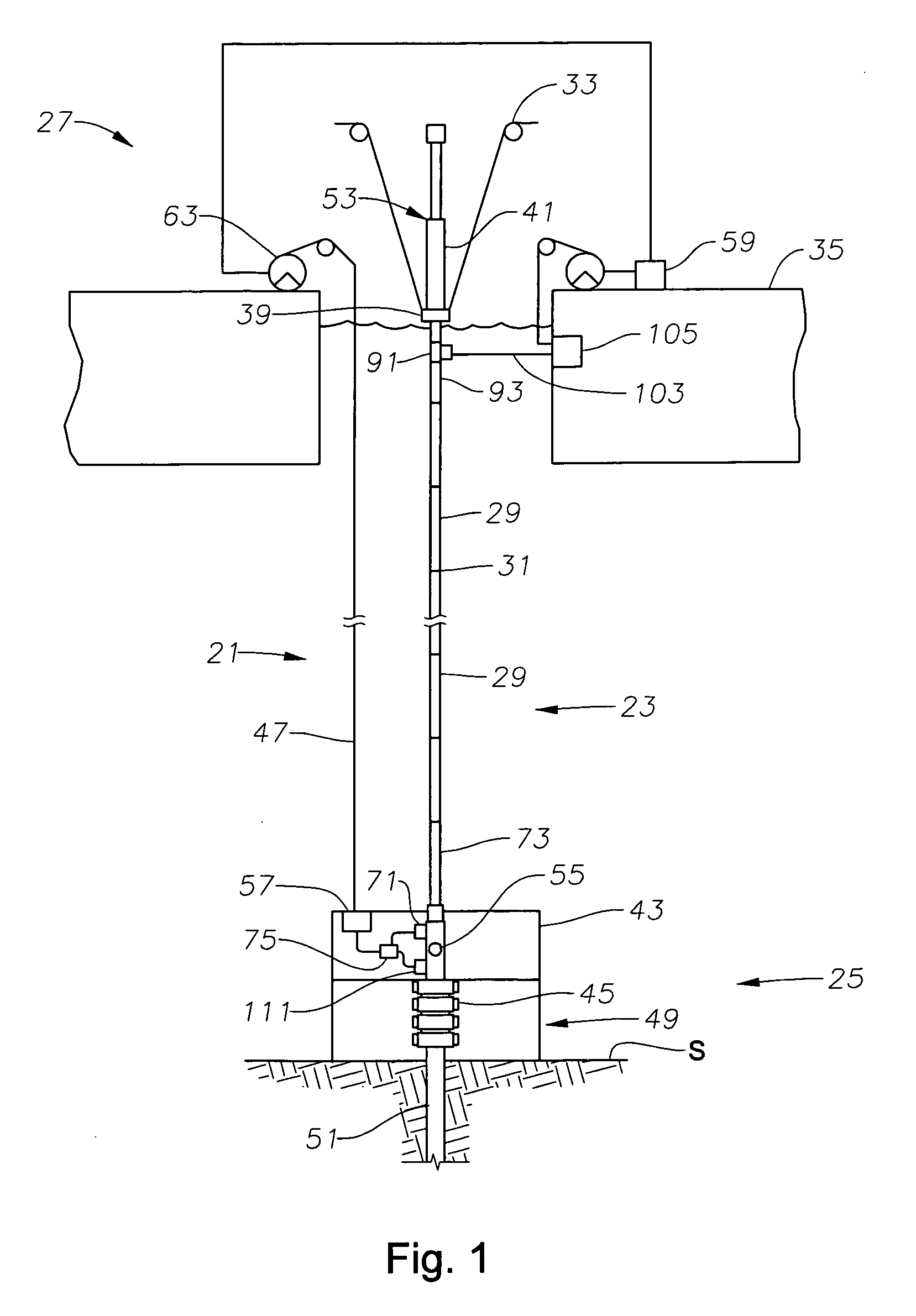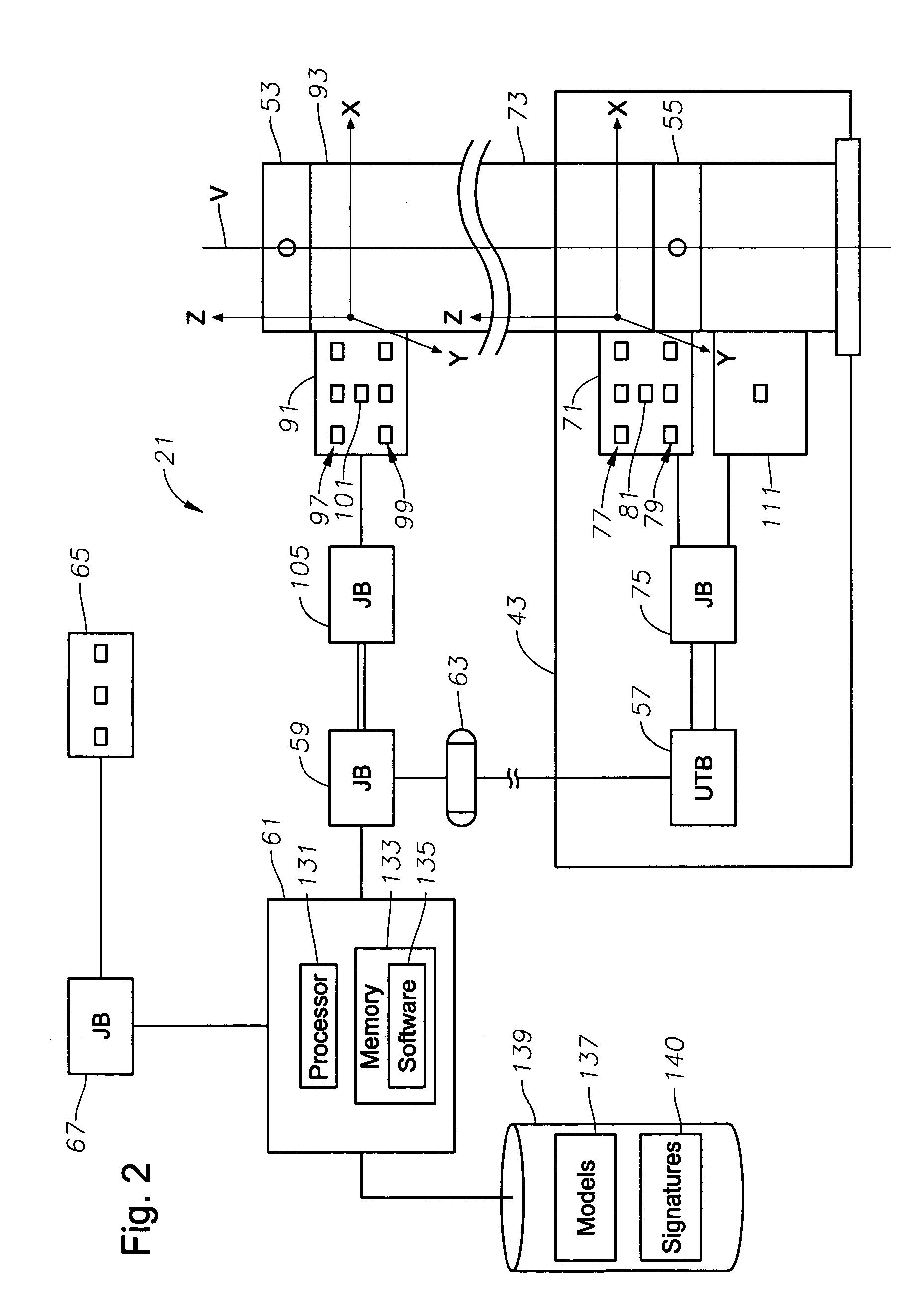System for sensing riser motion
a technology of riser motion and motion detection, applied in the direction of sealing/packing, instruments, borehole/well accessories, etc., can solve the problems of low displacement and force, combined stress, tensioner loss, static solution does not take into account any dynamics, and is not as accurate for the overall analysis, and the data to be provided to the computer system, however, has proved more problemati
- Summary
- Abstract
- Description
- Claims
- Application Information
AI Technical Summary
Benefits of technology
Problems solved by technology
Method used
Image
Examples
Embodiment Construction
[0033]The present invention will now be described more fully hereinafter with reference to the accompanying drawings which illustrate embodiments of the invention. This invention may, however, be embodied in many different forms and should not be construed as limited to the illustrated embodiments set forth herein. Rather, these embodiments are provided so that this disclosure will be thorough and complete, and will fully convey the scope of the invention to those skilled in the art. Like numbers refer to like elements throughout, and the prime notation, if used, indicates similar elements in alternative embodiments.
[0034]Referring to FIGS. 1 and 2, embodiments of the present invention generally provide an offshore drilling and / or production system 21 including a riser monitoring assembly for monitoring and managing a drilling riser pipe 23 extending between subsea well equipment 25, such as, for example, the illustrated subsea wellhead, and a floating vessel, such as, for example, ...
PUM
 Login to View More
Login to View More Abstract
Description
Claims
Application Information
 Login to View More
Login to View More - R&D
- Intellectual Property
- Life Sciences
- Materials
- Tech Scout
- Unparalleled Data Quality
- Higher Quality Content
- 60% Fewer Hallucinations
Browse by: Latest US Patents, China's latest patents, Technical Efficacy Thesaurus, Application Domain, Technology Topic, Popular Technical Reports.
© 2025 PatSnap. All rights reserved.Legal|Privacy policy|Modern Slavery Act Transparency Statement|Sitemap|About US| Contact US: help@patsnap.com



